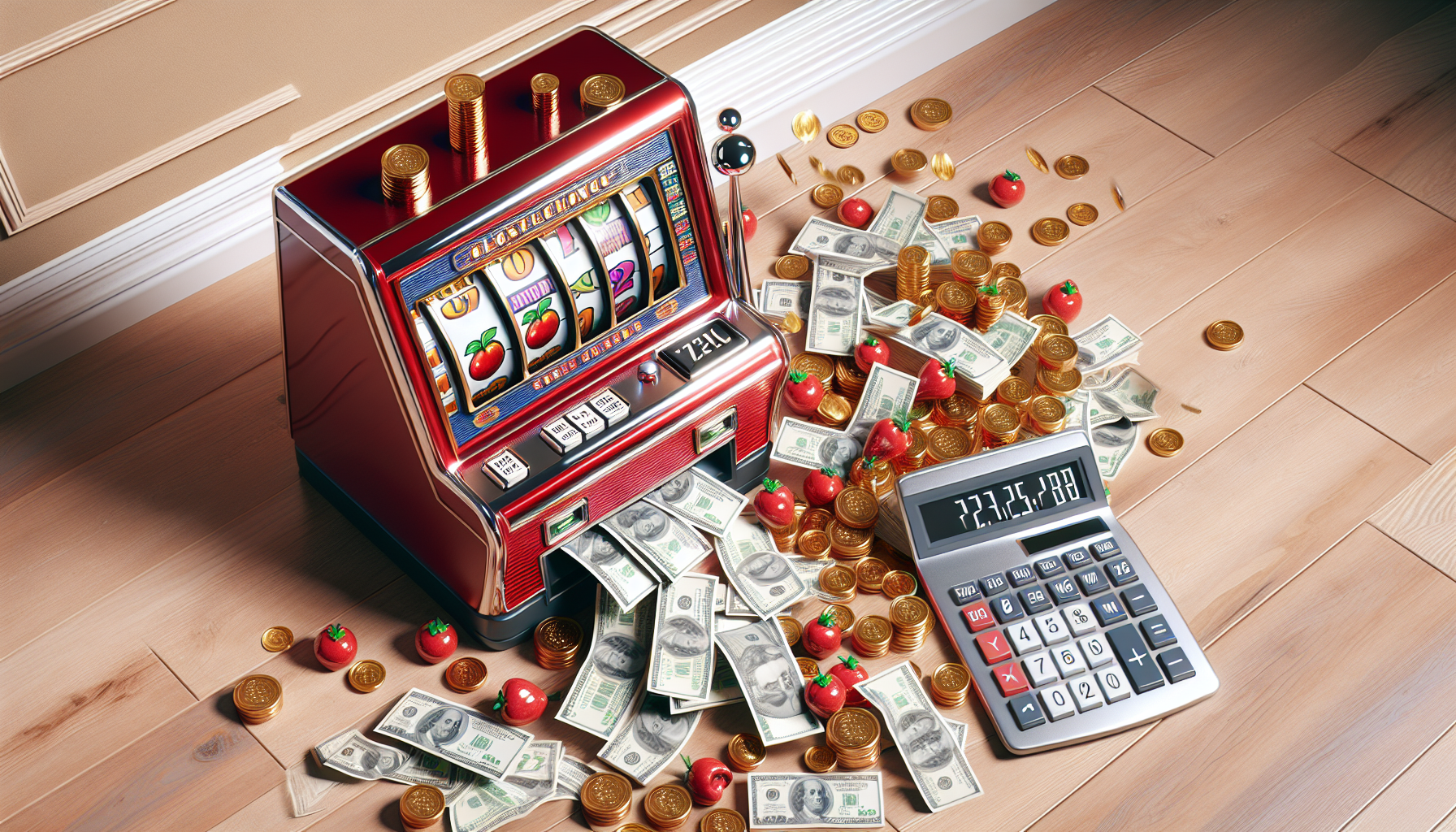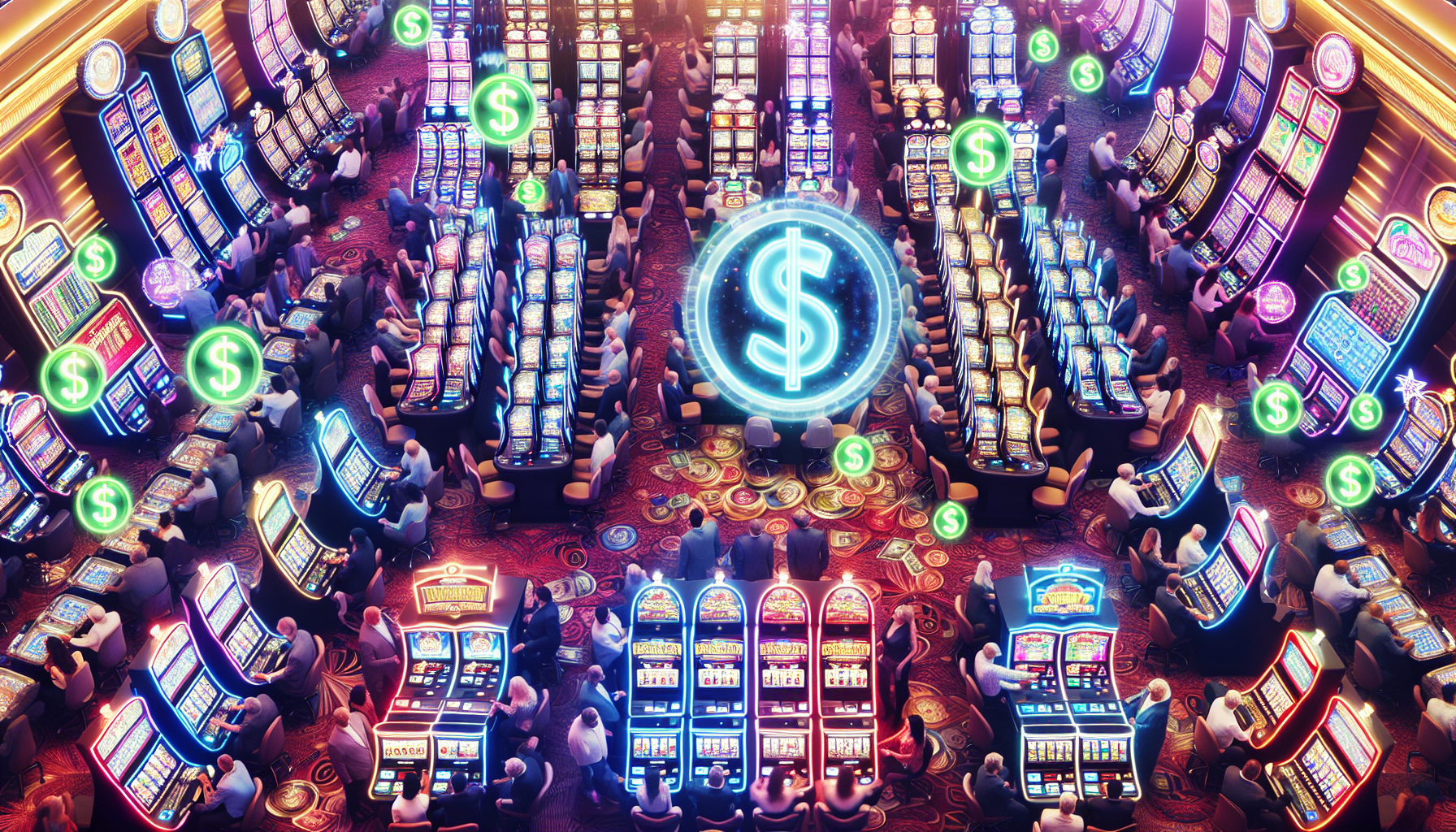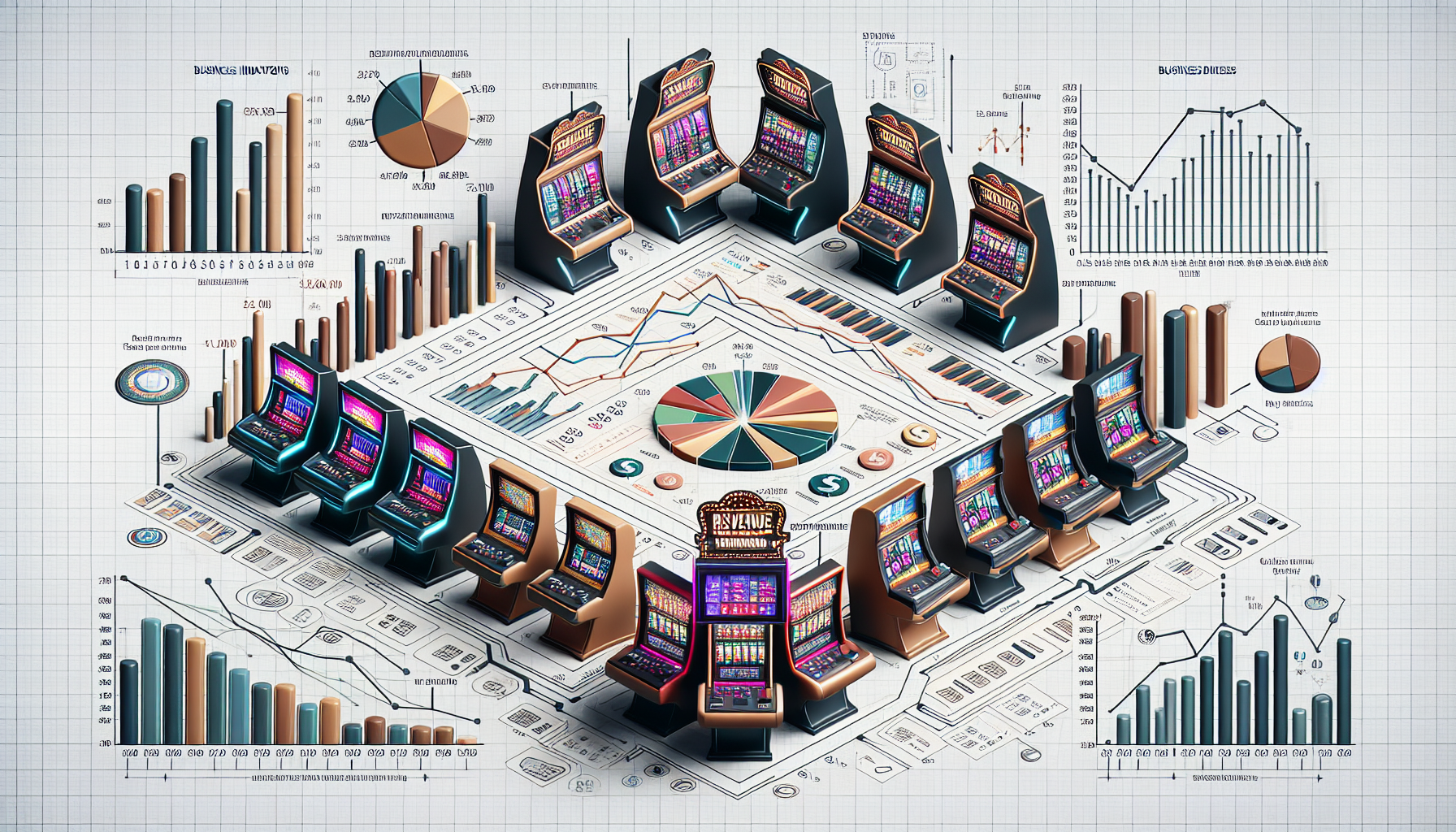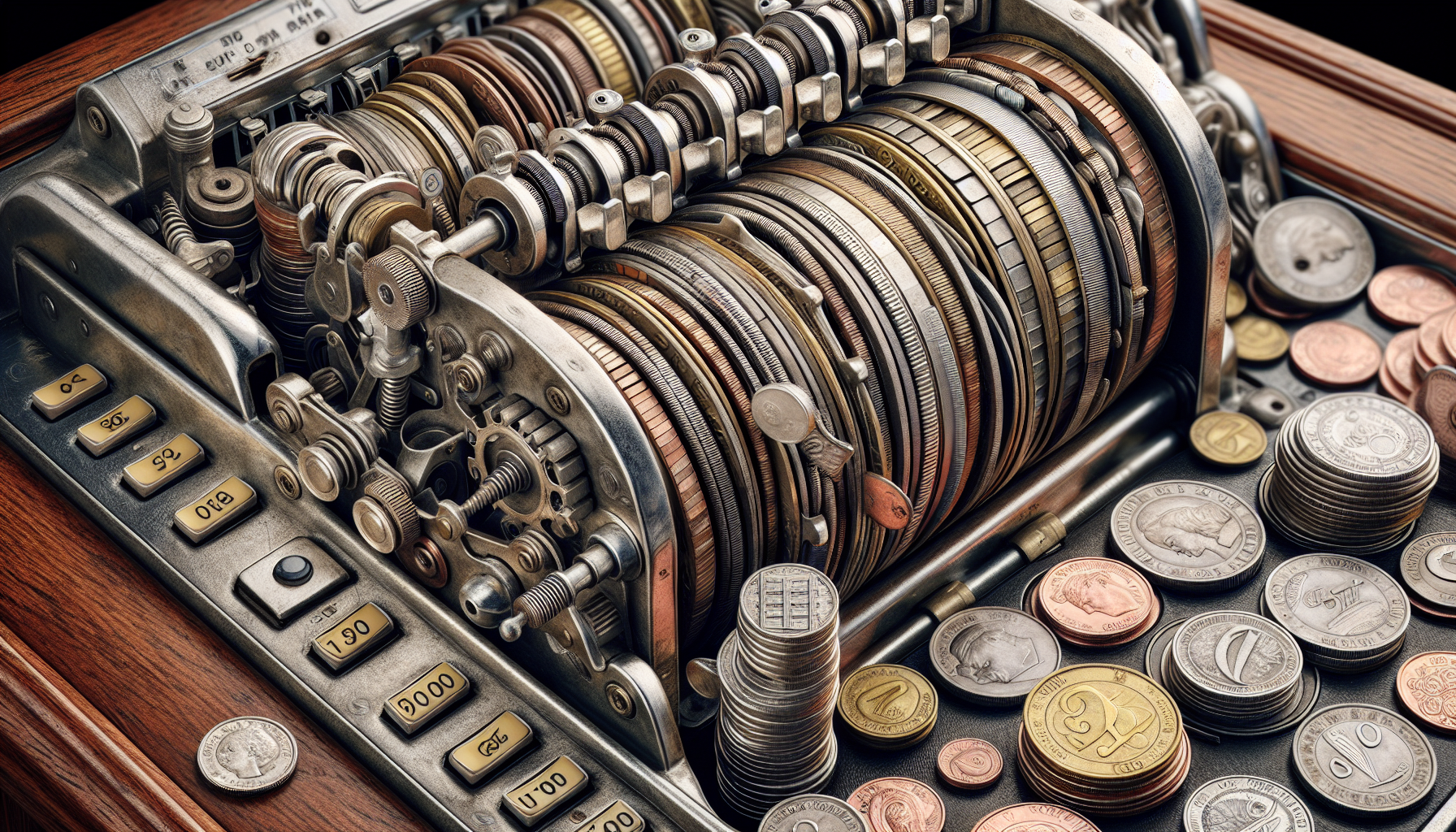How Much Money a Slot Machine Makes: A Complete Financial Guide

The burning question every casino visitor and aspiring entrepreneur asks: how much money does a slot machine actually make? The answer ranges from $100 daily in a local bar to over $800 per day on the Las Vegas Strip. The final number depends on four critical factors: location, machine type, payout settings, and ownership model.
Understanding slot machine profitability requires separating myth from mathematics. Whether curious about casino economics or considering purchasing a machine as a business investment, this guide breaks down the real numbers behind one of gambling's most profitable inventions.
Slot Machine Earnings: The Short Answer (By the Numbers)
Before diving into complex business models, here's what you need to know about slot machine earnings across different environments:
| Time Period | High-Traffic Casino (Las Vegas Strip) | Regional Casino | Local Bar/Venue (Private Owner) |
|---|---|---|---|
| Per Day | $600 - $1,200 | $200 - $400 | $50 - $150 |
| Per Month | $18,000 - $36,000 | $6,000 - $12,000 | $1,500 - $4,500 |
| Per Year | $216,000 - $432,000 | $72,000 - $144,000 | $18,000 - $54,000 |
*These figures represent gross revenue ("win") before expenses, taxes, and profit-sharing arrangements.*
Who Are You? Choose Your Path to Get the Right Answer
Your interest in slot machine earnings likely falls into one of two categories:
Path 1: The Casino Profit Engine. If you're fascinated by how casinos build multi-billion dollar empires on spinning reels and want to understand the mathematics behind every bet, this section reveals the financial machinery that powers the gaming industry.
Path 2: The Private Owner's Investment. If you're an entrepreneur considering purchasing a slot machine for your bar, laundromat, or other venue as a business investment, this path examines the realistic profit potential and hidden costs of ownership.
Path 1: How Casinos Turn Slots into Billions
Slot machines generate approximately 70% of casino revenue in the United States, making them the undisputed profit champions of the gaming floor. This dominance stems from their mathematical precision and operational efficiency.
The Core Concept: Understanding "Hold Percentage" and "House Edge"
Every slot machine operates on a mathematical principle called the "hold percentage"—the amount of money the casino keeps from total wagers. If a machine has a 92% Return to Player (RTP), the casino holds 8% of all money wagered.
This 8% "hold" doesn't mean the casino pockets every cent. From this gross win, casinos pay taxes (often 25-40%), machine maintenance, floor space costs, and employee wages. The actual profit margin on slot operations typically ranges from 2-4% of total handle.

Real-World Numbers: Average Daily Win Per Machine
According to the [Nevada Gaming Control Board's 2024 annual report], the average daily win per slot machine varies dramatically by location:
- Las Vegas Strip: $427 per machine per day
- Downtown Las Vegas: $201 per machine per day
- Local Las Vegas casinos: $156 per machine per day
- Regional Nevada casinos: $89 per machine per day
These numbers represent the casino's gross win—money retained after payouts but before operating expenses. Strip casinos achieve higher numbers through premium locations, newer machines, and higher-denomination games that attract serious gamblers.
From Gross Win to Net Profit: The Casino's Hidden Costs
Gross win is not net profit. Casinos spend significant portions of slot revenue on licensing fees, staffing, marketing campaigns, and maintaining the machines themselves.
A typical casino's slot operation expenses include:
- Gaming taxes: 25-40% of gross win in most jurisdictions
- Machine lease payments: $300-800 monthly per machine for newer models
- Maintenance and repairs: 3-5% of gross win annually
- Floor space allocation costs: Rent, utilities, security
- Regulatory compliance: Licensing, auditing, reporting fees
After these deductions, the actual net profit margin on slot operations ranges from 15-25% of gross win. This explains why casinos invest heavily in slot floor optimization and player retention programs.
Path 2: Is Buying a Slot Machine a Good Investment?
Private slot machine ownership operates on an entirely different financial model than casino operations. Success depends heavily on location partnerships and understanding revenue-sharing agreements.
How You'll Make Money: The Revenue Sharing Model Explained
Private owners typically don't operate machines directly. Instead, they partner with bars, restaurants, or other venues through revenue-sharing agreements. The standard split ranges from 50/50 to 60/40 (favoring the venue), depending on location quality and foot traffic.
Here's how it works: If your machine generates $3,000 monthly gross revenue, and you have a 50/50 split with the venue, you receive $1,500 before expenses. The venue provides space, electricity, and security while you handle machine maintenance and compliance.

Calculating Your Potential Profit: A Step-by-Step Guide
Example Calculation for a Bar Location:- Estimated daily plays: 40-60 (busy bar)
- Average bet per play: $2-5
- Daily handle (total wagered): $80-300
- Machine hold percentage: 8-12%
- Daily gross win: $6.40-36
- Monthly gross win: $192-1,080
- Your share (50%): $96-540
- Annual gross income: $1,152-6,480
The True Cost of Ownership: All Expenses You Need to Know
Initial Machine Cost (New vs. Used)
| Machine Type | Price Range | Pros | Cons |
|---|---|---|---|
| New commercial machines | $15,000-25,000 | Latest features, warranty | High upfront cost |
| Refurbished machines | $8,000-15,000 | 40-60% savings, proven reliability | Limited warranty |
| Older/basic models | $3,000-8,000 | Low entry cost | Higher maintenance, outdated features |
Legal & Licensing Fees (The Bureaucracy Tax)
- State licensing: $500-2,500 annually
- Local permits: $200-1,000 annually
- Legal compliance consulting: $1,000-3,000 setup
Maintenance, Parts, and Repair (The Money Pit)
- Routine maintenance: $100-300 monthly
- Emergency repairs: $200-800 per incident
- Software updates: $50-200 annually
- Insurance: $500-1,500 annually
"Newcomers see only potential income but forget that a slot machine isn't 'set it and forget it.' Monthly expenses for repairs, software updates, and emergency technician calls can consume 20-30% of your gross revenue if you're not prepared for them." — Regional gaming equipment operator with 15 years experience
The Harsh Realities: Common Pitfalls and Financial Risks
Before investing, understand these critical risks:
- Technical failures and downtime: Every non-operational day equals direct losses
- Poor location selection: Wrong venue choice can reduce income to near zero
- Regulatory changes: Sudden bans or stricter regulations can end your business overnight
- Vandalism and fraud: Attempted break-ins or cheating devices damage machines and reputation
- Market saturation: Too many machines in one area reduces individual profitability

Top 5 Factors That Make or Break a Slot Machine's Profit
1. Location, Location, Location (Casino Floor vs. Laundromat)
Machine placement dramatically impacts earnings. A machine near a casino entrance generates 3-5 times more revenue than one tucked in a back corner. For private owners, high-traffic venues with regular customers (sports bars during game nights) vastly outperform low-traffic locations.
Research from the [American Gaming Association] shows that machines in prime casino real estate earn 400% more than those in secondary locations. This principle applies equally to private placements—a machine in a busy truck stop generates more revenue than one in a quiet neighborhood bar.
2. Game Type & Theme (Popular Brands vs. Generic Slots)
Licensed games featuring popular TV shows, movies, or celebrities command higher player engagement. A "Wheel of Fortune" themed machine typically generates 20-40% more revenue than generic fruit machines, though licensing fees reduce profit margins.
Modern video slots with bonus features and progressive jackpots outperform traditional mechanical reels by significant margins. Players gravitate toward familiar brands and engaging gameplay mechanics.
3. Bet Denominations (Penny Slots vs. High-Limit Machines)
Penny slots generate steady, consistent revenue through high play volume. High-limit machines ($5-100 per spin) produce larger individual wins but depend on fewer, wealthy players. Most profitable operations balance both types.
The sweet spot for private owners often lies in $0.25-$1.00 denomination machines, which attract casual players without requiring massive bankrolls.
4. RTP & Volatility Configuration (The Payout Puzzle)
Machines with 88-92% RTP maximize long-term revenue by keeping players engaged without excessive payouts. Higher RTP (94-96%) attracts players but reduces hold percentage. Lower RTP (85-87%) drives players away quickly.
Volatility matters equally—low volatility machines provide frequent small wins, keeping casual players entertained. High volatility machines appeal to thrill-seekers willing to risk larger amounts for big payouts.
5. Local Laws and Tax Burden
State regulations vary wildly. Nevada allows private ownership with proper licensing, while states like Utah prohibit gambling entirely. Tax rates range from 15% to 50% of gross win, directly impacting profitability.
Some states permit "grandfathered" machines but ban new installations. Others allow charitable gaming only. Understanding local regulations prevents costly legal mistakes.
Physical vs. Online Slots: A Profitability Showdown
Online slots operate with fundamentally different economics than physical machines. Digital slots eliminate manufacturing, shipping, and maintenance costs while reaching global audiences 24/7.
Physical Machine Advantages:- Tangible experience appeals to traditional gamblers
- Local market protection from competition
- Immediate cash transactions
- Social atmosphere enhances player retention
- Lower operating costs (no physical maintenance)
- Global player base access
- Easier game updates and new releases
- Higher profit margins (60-80% vs. 15-25%)
- 24/7 operation without staffing costs
The online gaming market generates approximately $60 billion annually compared to $40 billion for land-based slots, indicating the digital shift's financial impact. However, physical machines maintain strong performance in tourist destinations and areas with limited internet infrastructure.

Frequently Asked Questions (FAQ)
How much does a new commercial slot machine cost?
New commercial-grade slot machines range from $15,000-25,000, depending on features and manufacturer. Popular brands like IGT, Aristocrat, and Scientific Games command premium prices. Refurbished machines offer 40-60% savings but may require more frequent maintenance.
Financing options exist through equipment leasing companies, typically requiring 10-20% down payments with 3-7 year terms. Monthly payments range from $300-600 depending on machine value and credit terms.
Is it legal for an individual to own a slot machine for profit?
Legality varies by state. Nevada, New Jersey, and several other states allow private ownership with proper licensing. Many states permit ownership of machines over 25 years old as "antiques" but prohibit commercial operation.
Always consult local gaming authorities before purchasing. Penalties for illegal operation include machine confiscation, heavy fines, and potential criminal charges.
Do casinos own all their slot machines, or do they lease them?
Most casinos use mixed ownership models. Large casinos often purchase high-performing machines outright while leasing newer or experimental games. Lease arrangements typically cost $300-800 monthly per machine, allowing casinos to test games without major capital investment.
Participation deals, where manufacturers retain ownership and split revenue with casinos, are increasingly common for premium machines with progressive jackpots.
How much money is physically inside a slot machine?
Modern slot machines contain $2,000-10,000 in cash, depending on denomination and location traffic. High-limit machines may hold $20,000-50,000. Most transactions occur electronically through ticket-in/ticket-out systems, reducing physical cash requirements.
Bill acceptors and hoppers require regular maintenance and cash management. Casinos employ specialized teams for currency handling and machine servicing.
The Bottom Line: Is a Slot Machine a License to Print Money?
For Casinos: Absolutely. Slot machines remain the cornerstone of casino financial models and one of the most stable revenue sources in the entertainment industry. With proper management, slots generate consistent profits regardless of economic conditions.
The mathematics work in casinos' favor through volume, optimal placement, and sophisticated player tracking systems. Large casinos process millions of dollars in slot handle daily, making small percentage holds extremely profitable.
For Private Investors: This isn't "passive income"—it's a high-risk business requiring expertise, perfect location selection, and readiness for unexpected expenses. Potential returns are attractive (15-25% annually on successful placements), but success isn't guaranteed.
The slot machine industry continues evolving with technology, but the fundamental mathematics remain unchanged: these machines generate substantial profits for those who understand the business, choose locations wisely, and manage operations professionally.
Success requires treating slot ownership as an active business, not a passive investment. Successful operators monitor performance metrics, maintain strong venue relationships, and adapt to changing market conditions.
*Remember: gambling involves risk, and past performance doesn't guarantee future results. Always gamble responsibly and within your means.*